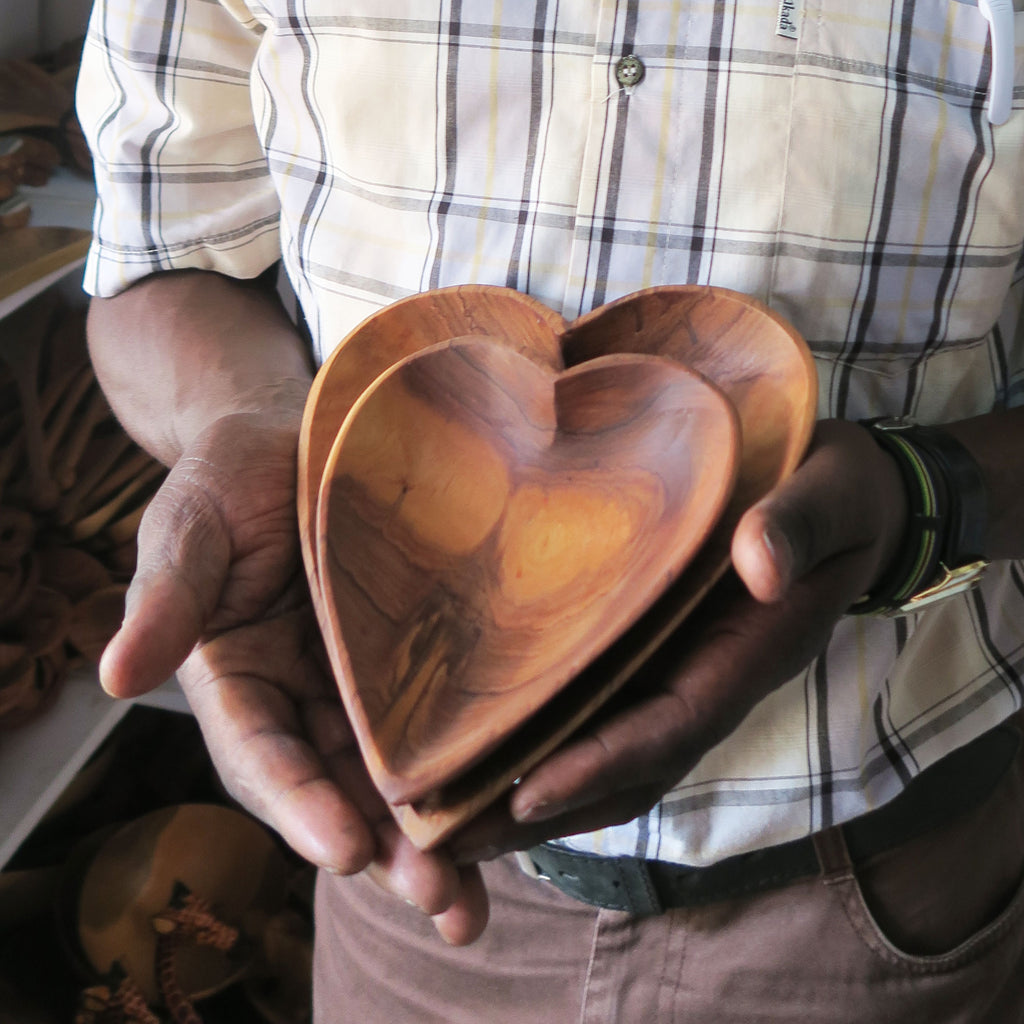Do you often wonder how to wash your wooden spoon? Do you find yourself searching "can wood utensils go in the dishwasher?" Fear not! We're here to help. Whether you're constantly replacing your wooden utensils or worried about the cleanliness of your favourite wooden spoon, we are here to show you the best ways to care for your beloved wooden cooking utensils. From cleaning to storage to sanatising, we’ve got you covered. So you'll be able to steer clear of plastic cooking utensils and make the most of your beautiful wooden cookware.
Why Choose Wooden Utensils?
You may be wondering why wooden utensils are a better option. Yes, they can take a little more looking after than your plastic spatula, but we think it's 100% worth it. Here's why:
Durability
Wooden kitchen utensils are a great choice for your home because they’re very durable, meaning you won’t have to replace them very often. Wooden utensils are made from 100% natural materials that don't warp or crack when exposed to heat. This means that you can use them for cooking just about anything without worrying about damaging them! With a little TLC, you'll be able to keep your wooden utensils in tip-top shape for a long time to come.
Eco Friendly
The reason that many people choose wooden utensils is that they’re more environmentally friendly than other types of materials such as plastic, stainless steel and silicone. This means less non-recyclable waste being thrown away by households everyday.

Ethically Made
Most plastic kitchen utensils are made in very large quantities in huge factories with little to no way of knowing how and who they are made by. By purchasing natural utensils from a reputable source, such as AARVEN, you can rest assured that your utensils were sustainably made and ethically sourced. We know exactly where our wooden spoons come from and who they are made by. In fact, we have been working with Zephania and the same group of artisans for over 10 years!
Timeless Beauty
Another reason why wooden kitchen utensils are so popular is because of their timeless natural beauty. Wooden utensils come in many unique styles to suit everyone's kitchen and personal tastes. From rustic to contemporary, wooden utensils offer so many styles. Plus, every piece is truly unique with its own wood grain pattern, meaning no two utensils will look exactly the same.
How Do I Clean My Wooden Utensils?
So, you've invested in some beautiful wooden utensils and whipped up a storm in the kitchen. Now you're wondering how to wash them! Cleaning your wooden utensils is actually very simple, but here are a few tips to help you out:
Wash by Hand
No matter how tempting it is to pop your wooden utensils into the dishwasher, you must resist! Simply hand wash your wooden utensils in some warm water with a gentle washing up liquid and sponge.
Don't Soak
It is really important not to soak your wooden utensils (which is why the dishwasher is a no-go) as this can cause them to absorb too much liquid, swell up and then eventually crack.

Dry Straight Away
To stop your wooden utensils from absorbing too much water, make sure to dry them straight away. A gentle wipe over with a soft cloth or tea towel is enough to dry them off. Don't use any heat to dry your wooden utensils.
Give Some TLC
Sometimes your wooden utensils may look a little bit tired or dried out. When this happens you can easily revive them to their former beauty. We recommend simply rubbing a little food-grade mineral oil into them (we like to use olive oil) with a soft cloth. We prefer to do this monthly but it's up to you how often you choose to treat them.
How Do I Sanitise My Wooden Utensils?
Wood is actually a far more hygienic material than plastic or other similar materials. Wood is naturally antibacterial, making it a fantastic choice for wooden utensils. Olive wood has an excellent reputation for being harder and less porous than other woods, making it very hygienic.
However, if you do feel like your wooden utensils need a bit of a deeper clean, there are a few things that you can do:
Vinegar
You can give your utensils a wipe down with some vinegar, which will naturally kill any bacteria on the surface. We recommend diluting your vinegar a little with some warm water and use a soft cloth when wiping your utensils.
Boiling
Whilst we wouldn't typically recommend using boiling water to clean your utensils, for a one-off sterilization it is okay. You can boil your utensils in water for 2-5 minutes. Be sure to dry them thoroughly straight away and treat them with oil afterwards.
Oven
You can place your wooden utensils in the oven at a low heat (around 160 celsius) for around 20 minutes to kill any bacteria. Make sure your utensils go in when the oven is cold to prevent any cracking. Again, use this method cautiously and always treat with oil afterwards.

How Do I Store My Wooden Utensils?
Storing your wooden utensils is simple and fuss-free. Here are our top tips for storage solutions for your wooden utensils:
- Be sure to store your utensils in a dry place. Keep them somewhere with low humidity that is protected from moisture.
- Keep your utensils away from heat sources. Don't put them anywhere that gets excessively warm.
- You can hang your utensils, store them in a drawer or keep them in a pot. Try and make sure they have airflow to them to prevent any damage.








